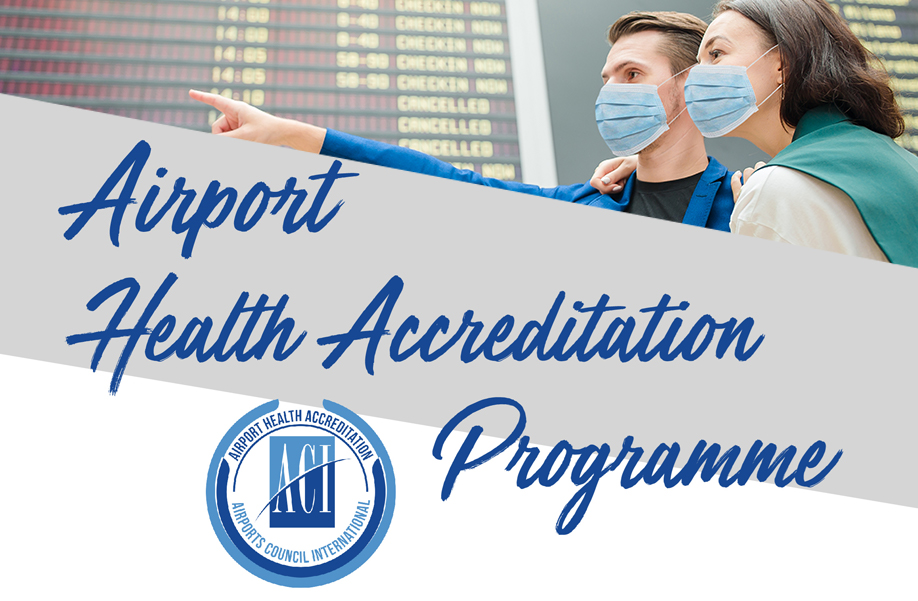Aviation’s strength has always been derived from the inter-connectedness and interdependence of all its parts, but the industry is facing its biggest crisis. The COVID-19 pandemic, its effects and impacts, have brought the industry to a virtual standstill with airports anticipating a -59.6% reduction in passenger volumes equating to -5.6 billion passengers for 2020. This is predicted to result in a staggering reduction of USD104 billion in revenue.
The interdependence from which the industry draws much strength has also meant that all parts of the aviation ecosystem have been hit hard with the Air Transport Action Group (ATAG) recently revealing that the pandemic will result in a loss of up to 46 million jobs that are supported by aviation worldwide.

As they first seek to survive and then recover, airports, airlines and their partners are looking for global leadership and consistency to show the way. It is the working relationship we have with our partners which has guided our response to the COVID-19 crisis and ICAO has been central to establishing this global consistency.
ICAO, member states, and representatives of the industry – including ACI World – have worked together to help establish recommendations to support a global recover through the ICAO Council Aviation Recovery Task Force (CART).
The Task Force guidelines help to inform worldwide governments and regulators in aligning and progressing the local, national, and regional recovery plans that are now being implemented around the world
This coordination must continue and accelerate to foster a globally harmonized recovery which represents the most effective way of balancing risk mitigation with the need to unlock economies and to enable travel.
The Airport Health Accreditation programme
Airports are introducing new health measures and procedures which are designed to provide a safe travel environment and to reassure passengers that their health and safety is the priority. Consistency will be the key to a sustained recovery and the ICAO guidelines lay the framework for a globally-coordinated approach which will foster public confidence in aviation.
To assist airports and to further the cause of a globally-harmonized recovery, ACI has developed the Airport Health Accreditation programme. Through Airport Health Accreditation, airports are able to demonstrate to passengers, staff, regulators, and governments that they are prioritizing health and safety in a measurable, established manner while also validating their own measures and processes.
The programme provides airports with an assessment of any new health and safety measures in accordance with ICAO Council Aviation Recovery Task Force (CART) recommendations and in alignment with the joint EASA and ECDC Aviation Health Safety Protocol and ACI EUROPE’s Guidelines for a Healthy Passenger Experience at Airports. It is the only airport health measures assessment supported by ICAO.
We are grateful for the support that ICAO has provided to the programme because it provides immeasurable assistance in promoting the harmonization of health measures being introduced around the world to facilitate the recovery of aviation.
It has been impressive to see how the industry has swiftly adapted to new realities to introduce new measures based on globally-consistent protocols and hundreds of airports have signed up to the programme already.
The success of the next phase of recovery, however, will require more global partnerships and more concerted efforts from governments.
![]() The next phase of recovery
The next phase of recovery
Airports and airlines are united in a call to governments around the to address the devastating impact of border closures and other government-imposed travel restrictions through direct financial support that protects jobs and operations.
But assistance is only one piece of the puzzle.
ACI and IATA have called for urgent government action to introduce widespread and coordinated testing of passengers to enable quarantine requirements to be removed. Without this action, it is not an exaggeration that the industry is facing collapse
An internationally agreed and recognized approach to testing passengers during the travel process that is fast, practical, accurate, low-cost, easy-to-use and supported by public health authorities will be key.
We look forward to continuing work together across the industry and hand in hand with ICAO and international health organisations to continue the call for testing and to ensure a coordinated recovery while providing crucial reassurance to travellers.
This is important because a successful recovery of aviation is not only crucial for the millions of people that rely on it for employment and economic and social prosperity, it is also crucial for the wider global economic recovery.
Airports are major supporters of United Nations Sustainable Development Goals 8, 9 and 10 concerning work and economic growth, industry, innovation and infrastructure, and reduced inequalities. They support other goals, such as reducing poverty, facilitating access to quality education, promoting gender equality, building sustainable cities and communities, and partnering for the goals with other industries.
Continued collaboration, cooperation and consistency across the aviation industry will be the key to rebuilding global air services capacity and keeping passengers safe, healthy, and secure, and this sector sustainable, as we do this.


